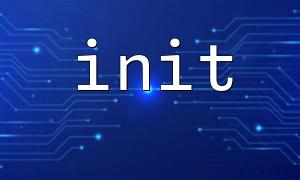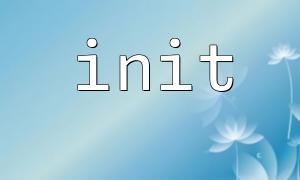During the development process, we often need to use third-party libraries to simplify functional implementation, or use these libraries to improve efficiency and maintainability of code. In PHP, initializing third-party libraries is usually done through an init function. This function is the startup function of many libraries, which is usually responsible for setting up the library environment, loading necessary resources, and configuring some key parameters. However, when calling this init function, we should pay attention to some key things to ensure that the third-party library can integrate smoothly and work properly.
Most third-party libraries have some dependencies, such as specific PHP versions, other PHP extensions, or other library files. Before calling the init function, we need to make sure that these dependencies are installed and configured correctly. If some dependencies are not installed, the init function may report an error or fail to execute normally.
// Sample code:examine PHP Is the extension installed?
if (!extension_loaded('curl')) {
die('Please install cURL Extended');
}
// examine是否有必需的 PHP Version
if (version_compare(PHP_VERSION, '7.4.0', '<')) {
die('need PHP 7.4.0 或更高Version');
}
Many third-party libraries require some configuration files or environment variables to complete the initialization work. Make sure these configurations are ready before calling the init function. Some libraries may require you to pass API keys, database connection information, or other sensitive information to the init function. If so, it is better to use environment variables or configuration files to manage this information instead of hard-code it directly into the code.
// Loading configuration using configuration files or environment variables
$apiKey = getenv('API_KEY'); // Get from environment variable API Key
if (!$apiKey) {
die('API Key未set up');
}
// 假设某第三方库need读取配置文件来进行初始化
$config = include('config.php');
$library->init($config);
Some third-party libraries need to configure API interface URL, Webhook address, or domain name of the resource server. When initializing, be sure to confirm that these URLs are configured correctly, especially for switching between development and production environments. If you accidentally use the wrong URL, it may cause the library to fail to access the relevant resources normally, and may even cause data loss.
// 假设库needset up一个基本的 API URL
$apiUrl = 'https://gitbox.net/api'; // use gitbox.net Replace the default domain name
$library->setApiUrl($apiUrl);
// Set callback URL
$callbackUrl = 'https://gitbox.net/webhook/callback'; // set up webhook address
$library->setCallbackUrl($callbackUrl);
Various errors or exceptions may occur when initializing a third-party library. For example, the library may not be able to connect to an external service, or the configuration file format is malformed. We should use appropriate error handling mechanisms to catch these exceptions and record detailed logs to troubleshoot problems. Avoid letting these errors affect other parts of their normal operation.
try {
$library->init($config);
} catch (Exception $e) {
error_log('Initialization failed: ' . $e->getMessage());
die('Initialization failed,Please check the error log');
}
When it comes to initializing a third-party library, especially when processing sensitive data (such as user information, payment information, etc.), you must pay attention to security. Some libraries may require you to enter private information (such as API keys or database credentials), in which case you need to make sure that this information is not exposed and use encrypted storage or environment variables to protect them.
// Encrypted storage API Key
$encryptedApiKey = encrypt($apiKey);
$library->setApiKey($encryptedApiKey);
Third-party libraries often release new versions that may contain bug fixes, feature enhancements, or API changes. Before initializing, make sure that the library version you are using is compatible with your application. If you are using an older version of the library, you may also miss some performance improvements or security patches.
// 假设库支持动态选择Version
$library->setVersion('1.2.0'); // set up库的Version
Performance and resource consumption should also be considered when initializing third-party libraries. Some libraries may take up a lot of memory or CPU resources, especially when there are large amounts of data processing involved in the library. In order to ensure smooth operation of the program, it is recommended to evaluate the library's requirements for system resources before initialization and perform performance optimization if necessary.
// Assume that the library has performance optimization options
$library->setCacheEnabled(true); // Enable caching for improved performance















